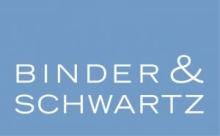The United States Supreme Court’s recent decision in ZF Automotive US, Inc., et al., v. Luxshare, Ltd., No. 21-401, holds that U.S. federal courts cannot order discovery in aid of international commercial arbitrations or investor-state arbitrations. In a unanimous decision, the Court reasoned that a “foreign tribunal,” under 28 U.S.C. § 1782, “is best understood as an adjudicative body that exercises governmental authority” rather than a private body that is merely located in another country. Because the private arbitral tribunal in the ZF Automotive case did not exercise governmental authority, the Supreme Court denied discovery in aid of the proceeding under Section 1782.
The decision resolves a circuit split over whether private commercial arbitration panels should be considered “foreign or international tribunals” under 28 U.S.C. § 1782, and thus whether U.S. discovery should be allowed in such private commercial arbitrations. Section 1782 authorizes a district court to order the production of evidence “for use in a proceeding in a foreign or international tribunal.” The Fourth and Sixth Circuits have previously held that international commercial arbitrations are foreign tribunals under the statute, while the Second, Fifth, and Seventh Circuits have held that they are not. The availability of discovery under Section 1782 is a key issue for the international arbitration community because the scope of discovery allowed under Section 1782 is generally broader than any discovery allowed under institutional arbitral rules or under foreign arbitration laws.
In reaching its decision, the Court found that the word “tribunal” carries a distinctively governmental flavor. A prior version of Section 1782 covered only “judicial proceeding[s]” in any court in a foreign country, however, Congress later expanded the legislation’s scope to cover proceedings in a “foreign or international tribunal.” The Court found that while this change broadens the understanding of “tribunal” to include tribunals that are not formal courts, the term is still best understood to refer to an adjudicative body that exercises governmental authority. Under the decision, a “foreign tribunal” is a tribunal belonging to a foreign nation while an “international tribunal” is best understood as one that involves two or more nations imbued with governmental authority. Location of the tribunal or the nature of the parties to the dispute are not determinative in this interpretation.
The Court also noted that extending Section 1782 discovery to cover international arbitrations would conflict with the Federal Arbitration Act, which governs domestic arbitrations. Thus, interpreting Section 1782 as applying to international arbitration would create a “notable mismatch between foreign and domestic arbitration.”
The Court’s decision came in a consolidated case arising out of appeals in the Sixth and Second Circuits. The first case involves a dispute between Luxshare, a Hong Kong company and ZF Automotive US Inc., a Michigan-based company, over an allegedly fraudulent sales transaction. The agreement between the parties provided that all disputes would be resolved by an arbitral panel under the Arbitration Rules of the German Arbitration Institute (DIS). In preparation for bringing an arbitration, Luxshare filed an ex parte petition under Section 1782 in the U.S. District Court for the Eastern District of Michigan seeking information from ZF Automotive and its officers. The district court granted the petition and ZF Automotive moved to quash, arguing that a panel formed under the auspices of the DIS was not a “foreign or international tribunal” under Section 1782. The district court denied the motion and the Sixth Circuit denied a stay.
The second case involves AB bankas SNORAS, a Lithuanian bank which was nationalized by Lithuanian authorities. The Fund for Protection of Investors’ Rights in Foreign States, a Russian corporation, commenced an ad hoc arbitration proceeding against Lithuania under a bilateral investment treaty that the country entered with Russia. The Fund filed a petition under Section 1782 in the district court seeking information from AlixPartners, LLP, a New York-based consulting firm, and one of its officers. AlixPartners challenged the petition, arguing that the ad hoc panel was also not a “foreign or international tribunal” under Section 1782. The district court rejected that argument in a decision that was affirmed by the Second Circuit.
The Court’s decision is likely to spark much discussion in the international arbitration community. There will likely be a significant impact on current and future international arbitrations, with parties having to consider their strategies for discovery in light of the unavailability of a critical information-gathering tool. On the other hand, for better and for worse, this decision will further streamline the international arbitration process, as many arbitral proceedings will not be delayed by related litigation over discovery in U.S. courts.




 />i
/>i

